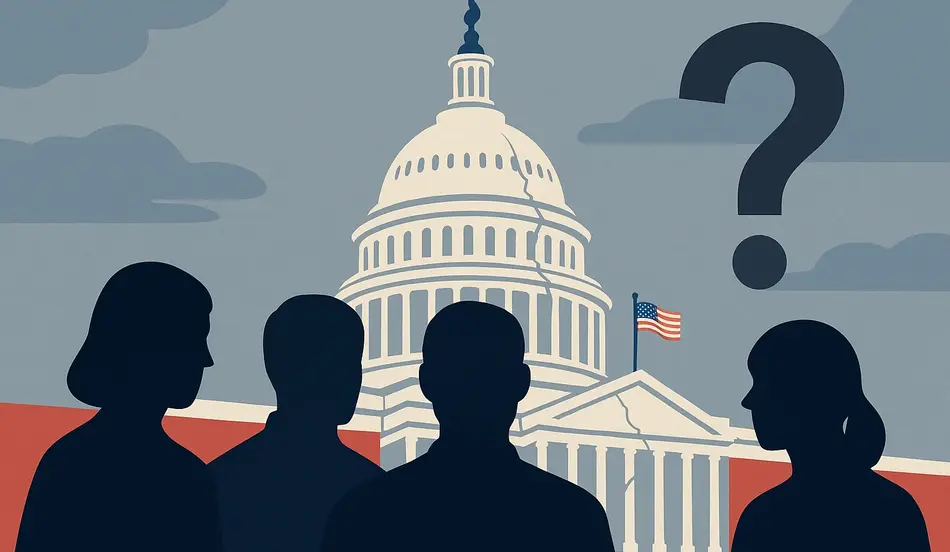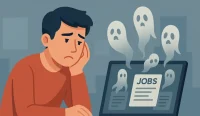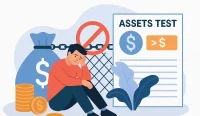Is American Democracy in Crisis? This isn’t just a political question—it’s a question that directly impacts your career, your economic opportunities, and your future. Since the assassination of Charlie Kirk, the political temperature in America has risen markedly, with Republicans and Democrats reaching new heights of partisan antipathy. The Trump administration’s promise of a sweeping crackdown on the “radical left” and Democratic accusations of autocratic assault on American institutions have exacerbated pre-existing anxieties about the health of American politics.
For job seekers and career-minded professionals, understanding this democratic crisis isn’t just about being informed citizens—it’s about understanding the economic and social forces that will shape your career opportunities, the stability of the industries you work in, and the long-term viability of the American economy. When democracy is in crisis, everything from job security to investment opportunities to career advancement becomes uncertain.
Stability in Uncertain Times
When democracy is in crisis, job security, investments, and careers face greater uncertainty. Employers can provide stability by opening opportunities that empower individuals and strengthen communities. Post your job on WhatJobs today and connect with candidates seeking certainty in uncertain times.
Post a Job Free for 30 Days →The Foundation of Democracy: Understanding Losers Consent
The concept of “losers consent” might seem abstract, but it’s actually the foundation that makes democracy work. Losers consent refers to the notion that the losers in democratic elections nonetheless accept the result without resorting to violence or secession. This is essential for democracy to function because without it, elections no longer guarantee real transfers of power.
Losers consent relies on three critical pillars that are all currently under severe pressure in America:
• A common sense of nation – The belief that we’re all fellow citizens who can temporarily subsume individual wants to those of the nation
• Mutual faith in electoral fairness – Trust that the other side hasn’t cheated and that the process is legitimate
• Confidence in future elections – The belief that losses aren’t permanent and there will be another chance
When these pillars crumble, democracy itself becomes unstable, creating ripple effects throughout the economy and job market that directly impact your career prospects.
The Erosion of National Unity
Political polarization has severely strained any common sense of nation in America. According to Pew polling from 2022, Democrats and Republicans are far more likely to express very unfavorable views of the other party than ever before. Majorities of both parties accuse the other side of being immoral, dishonest, unintelligent, and close-minded. Perhaps most tellingly, both Democrats and Republicans have become increasingly likely to say they would feel unhappy if their child married someone from the other party.
This polarization has been amplified by social media, which magnifies extreme voices on both sides and creates misperceptions about the other side. Republicans overestimate how radical Democrats are, and Democrats overestimate how radical Republicans are. The assassination of Charlie Kirk has only made this worse, with some Republicans believing the left supports political violence and is therefore not deserving of political decency.
The Crisis of Electoral Integrity
Both sides are rapidly losing faith in the fairness of the electoral process. Trump continues to baselessly insist he won the 2020 election, while interstate disagreements over voting laws, the egregious influence of money in politics, blatant gerrymandering, and the hyperpoliticization of the Supreme Court have all contributed to a sense that elections in America are no longer fair.
The Kirk assassination has escalated this crisis, with Trump using it to intensify his assault on America’s media, which exacerbates Democratic fears that Trump is unfairly weaponizing institutions in his favor. This creates a dangerous cycle where each side believes the other is cheating, making future elections increasingly contested and potentially violent.
The Threat to Future Elections
Perhaps most alarmingly, some Democrats worry there might not be another free and fair election after Trump, viewing the 2026 midterms as potentially the last chance to save American democracy. Conversely, Trump and senior Republicans face the real possibility of criminal prosecution if they lose the next election. Special counsel Jack Smith claimed earlier this year that Trump would have already been convicted for illegally trying to overturn the 2020 election had he not won in 2024.
This creates a situation where both sides see the next election as potentially existential, making the stakes impossibly high and increasing the likelihood of violence and institutional breakdown.
The Economic and Career Implications
The democratic crisis has profound implications for job seekers and career professionals:
• Economic instability – Political uncertainty creates market volatility that affects job security and investment opportunities • Industry disruption – Government policy changes become unpredictable, making long-term career planning difficult • Geographic mobility – Political violence and instability may limit where you can safely work and live • Skill development – The focus shifts from productive economic activity to political survival
When democracy is in crisis, the normal rules of economic and career advancement no longer apply, making it essential to understand these forces and position yourself accordingly.
The Global Context
While political temperatures are rising globally, America’s democratic crisis is uniquely acute. In most other democracies, losers consent has generally held up, but America’s crisis disrupts the normal rhythm of democratic politics. Elections should provide relief—both sides fight hard during campaigns, then things calm down once results are decided. Without losers consent, elections become flashpoints, and politics gets stuck in an endless escalating cycle of partisanship.
This makes America less attractive to international businesses and investors, potentially limiting job opportunities and economic growth for American workers.
The Media and Information Crisis
The current media landscape compounds these problems by creating echo chambers where people only see information that confirms their existing beliefs. This makes it nearly impossible to have productive political discussions or find common ground, further eroding the possibility of democratic renewal.
The assassination of Charlie Kirk has been covered by 1,636 sources with 293 reported by the left and 243 by the right, demonstrating how the same events can be interpreted completely differently depending on your information sources.
The Path Forward
Understanding the democratic crisis is the first step toward protecting your career and future. While the situation is serious, there are steps you can take:
• Stay informed – Seek out diverse news sources to avoid echo chambers • Build resilience – Develop skills that are valuable regardless of political outcomes • Plan strategically – Consider how political instability might affect your industry • Engage constructively – Look for ways to bridge divides in your professional networks
The democratic crisis isn’t just a political problem—it’s an economic and career problem that requires strategic thinking and preparation.
Frequently Asked Questions
Is American democracy in crisis?
Yes, American democracy is in crisis due to the erosion of “losers consent,” extreme political polarization, and loss of faith in electoral integrity. This crisis affects not just politics but also economic stability and career opportunities.
What is losers consent and why does it matter?
Losers consent is the concept that election losers accept results without violence or secession. It’s essential for democracy to function, and its erosion in America threatens the stability of our political and economic systems.
How does the democratic crisis affect job seekers?
The democratic crisis affects job seekers by creating economic instability, making government policy unpredictable, potentially limiting geographic mobility, and shifting focus from productive economic activity to political survival.
What are the three pillars of losers consent?
The three pillars of losers consent are: a common sense of nation, mutual faith in electoral fairness, and confidence in future elections. All three are currently under severe pressure in America.
How does political polarization impact careers?
Political polarization impacts careers by creating economic uncertainty, making long-term planning difficult, potentially limiting job opportunities, and creating workplace tensions that can affect professional relationships.
What can individuals do about the democratic crisis?
Individuals can stay informed through diverse news sources, build resilient skills, plan strategically for political instability, and engage constructively in their professional networks to help bridge political divides.
Why is America’s democratic crisis unique?
America’s democratic crisis is unique because while political temperatures are rising globally, most other democracies have maintained losers consent. America’s crisis disrupts the normal rhythm of democratic politics and creates an endless cycle of escalating partisanship.
A Real-World Example: Maria’s Career Dilemma
Maria, a marketing professional in her early 30s, found herself caught in the crossfire of America’s democratic crisis. Working for a company that had clients across the political spectrum, she began to notice how political polarization was affecting her work environment and career opportunities.
During the 2020 election and its aftermath, Maria’s workplace became increasingly divided. Colleagues who had previously worked well together began avoiding each other, and client meetings became tense when political topics arose. More concerning, Maria noticed that some clients were beginning to choose vendors based on political alignment rather than professional competence.
When the January 6th insurrection occurred, Maria’s company lost several major clients who blamed “the other side” for the political instability. This led to layoffs and budget cuts that directly impacted her career trajectory. Maria realized that the democratic crisis wasn’t just something happening in Washington—it was affecting her daily work life and economic security.
This experience taught Maria that understanding political dynamics isn’t just about being an informed citizen—it’s about protecting your career and economic future in an increasingly unstable political environment.
Protect Your Future in Uncertain Times
The democratic crisis isn’t just a political problem—it’s a career and economic problem that requires strategic thinking and preparation. Understanding these forces helps you make informed decisions about your career, investments, and future opportunities.
Don’t let political instability catch you off guard. Stay informed, build resilience, and position yourself for success regardless of political outcomes.
Ready to build a career that can weather any political storm? Explore current job opportunities and take control of your professional future today.




